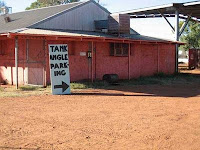The following is an excerpt from the Aboriginal Protection Act of 1869, commonly thought to be the first in a long line of poilcy documents that led to the removal of Aboriginal 'half caste' children from their families 'for their own protection'. It seems the themes haven;t changed much since 1869 - land, welfare, education and child protection.
Remind me again, how did it work out the first time?
Aboriginal Protection Act 1869 (Vic)
It shall be lawful for the Governor from time to time to make
regulations and orders for any of the purposes hereinafter mentioned, and
at any time to rescind or alter such regulations (that is to say) :—
(I.) For prescribing the place where any aboriginal or any tribe
of aborigines shall reside.
(II.) For prescribing the terms on which contracts for and on
behalf of aboriginals may be made with Europeans, and upon
which certificates may be granted to aboriginals who may be
able and willing to earn a living by their own exertions.
(III.) For apportioning amongst aboriginals the earnings of
aboriginals under any contract, or where aboriginals are located
on a reserve, the net produce of the labor of such aboriginals.
(IV.) For the distribution and expenditure of moneys granted by
Parliament for the benefit of aborigines.
(V.) For the care custody and education of the children of
aborigines.
(VI.) For prescribing the mode of transacting the business of
and the duties generally of the board or any local committee
hereinafter mentioned and of the officers appointed hereunder.






